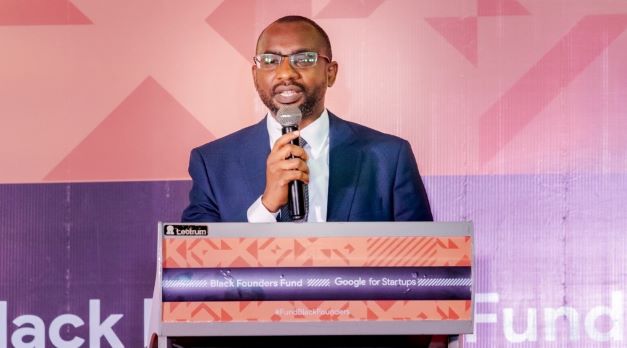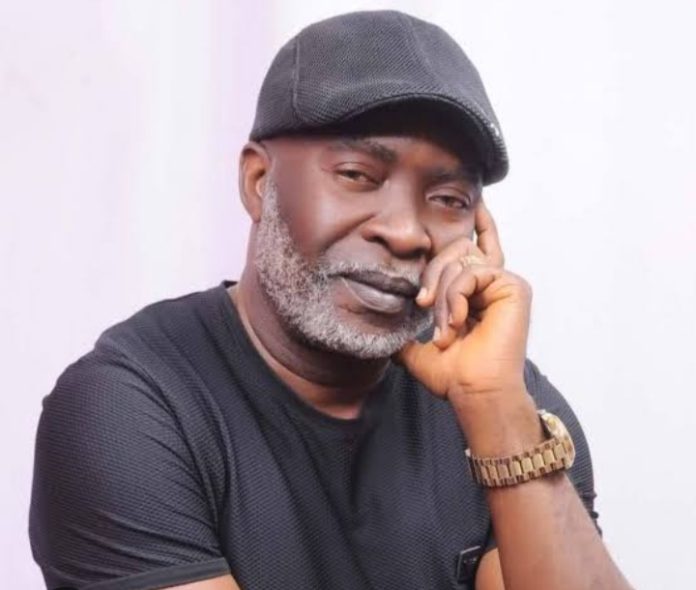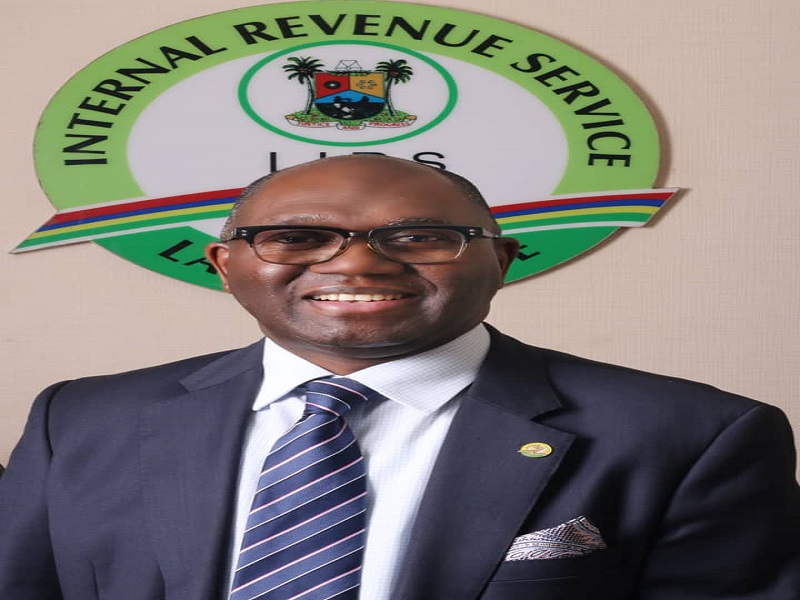News
NITDA DG Reiterates Agency’s Commitment to Grow Region’s Tech Ecosystem

In view of the relatively low visibility of the Innovation ecosystem in Northern Nigeria, despite being a region with hub of innovators, creatives, startups and several success stories, the Director-General of the National Information Technology Development Agency (NITDA), Kashifu Inuwa Abdullahi, CCIE, has reiterated the Agency’s commitment to support, and catalyse the emergence/growth of the region’s innovation ecosystem.

Inuwa said this while delivering a Keynote Address during a ‘Stakeholders’ Engagement on the State of the Northern Innovation Ecosystem’, which held in Abuja.
Describing the event as “‘setting the sense of urgency for something to be done in favour of the Northern Innovation Ecosystem’, the Director-General noted that the timely call amplifies the opportunities, challenges as well as the need to build strategic partnerships toward achieving the overall goals.
“This platform has spurred the necessary conversations that we need to have in order to tackle some of the bottlenecks that have over the years stifled the growth of the ecosystem in the region”.
“As an Agency under the Ministry of Communications, Innovation and Digital Economy, we are here to add our collective voice and render relevant support targeted at fostering economic growth and development in the North and Nigeria as a whole”, Inuwa affirmed.
The DG Aligned the thrusts of the discussions to the Federal Government’s ‘Renewed Hope Agenda’ and one of the Priority Areas of the President Bola Ahmed Tinubu Adminstration, which is ‘Accelerating Diversification through Industrialisation, Digitisation, Creative Arts, Manufacturing and Innovation’.
According to the DG, the involvement of NITDA in the quest, further aligns with some pillars of the Agency’s Strategic Roadmap and Action Plan, which deal with ‘Nurturing an Innovative and Entrepreneurial Ecosystem’ and Forging Strategic Partnerships and Collaboration amongst others.
Inuwa expressed the hope that the Northern Innovation Ecosystem will be used to create jobs, solve agricultural problems, healthcare, transportation, education and many more in the region.
“In the North and Nigeria in general, our biggest opportunity is the large market and expansion we have, because we have a young population where more than 60% is under 25, which means they are digitally natives”.
“Given the fact that our greatest resource as a country is human capital, we therefore, want to harness this population to make Nigeria a talent net exporter”, the DG avowed.
The NITDA Boss who took time to explain the Strategic Blueprint (five Pillars) of the Ministry and of course the Agency’s eight Pillars of the SRAP document, and how they directly address some of the issues raised, urged for the need to co-create and co-design the solutions with the ecosystem, in order to build trust between the ecosystem and the government.
“We want them to know that the government is here to handhold and support them in terms of interventions, building the talents, and infrastructures in unserved and underserved communities, as well as providing the incentives for them to grow”, Inuwa assured.
Inuwa however challenged Northerners not to allow the identifed challenges in the area to hinder their innovative ideas, as there are silver linings in each difficulty.
“Lack of funding is always one of the issues, yes, but we can start with the small we have. It is not enough to always mention the challenges, let us also look for innovative ways to tackle them”, Inuwa urged.
Inuwa informed the audience that the Agency is conceptualising the idea of establishing Technology Development Zones, one in each geopolitical zone of the country, adding that there are plans to also have an average innovation hub in every state of the federation.
“To sustain and deal with the recurring challenge of monopoly of the hubs by some facilities in Universities, we are trying to come up with a framework where we can build innovation hubs outside of Universities, then sign an M.O.U with the ecosystem to bring in anyone that is willing to manage the facility, we will give the person targets and KPIs to aid the management of such hubs”.
“It is an idea we are trying to conceptualise and we are open to co-designing it with the ecosystem, so anybody who is interested can reach out to us, so that we can figure out how to achieve that”, the Director-General said.
Head of Experimentation, United Nations Development Programme (UNDP), Jamila Mohammed, while speaking on the essence of the meeting, maintained that the whole idea around having the conversation with the stakeholders for the northern innovation ecosystem is to begin to engage key players in the innovation space to come together and help in positioning the ecosystem, in order to address developmental challenges in the region.
“The essence of all this is to galvanise action to catalyse action, to be able to disrupt the way innovation is done in the region itself”.
“There is a need for us to pull all our resources together to be able to position the resource system to accelerate the SDGs, because we know we are far behind in achieving Sustainable Development Goals and there is that urgency to be able to come up with new methodologies, and solutions that will take us to that promised land”, Ms. Jamila noted.
Other stakeholders took turns to share their thoughts, as they unanimously affirmed the fact that the Northern Ecosystem Working Group (NEW-G) which was established in collaboration with UNDP remains a significant rallying point to nurture and fuel the Northern Ecosystem’s emergence with strategic levelling up initiatives.
News
Stanley Amandi, Nollywood Actor Arrested over Alleged Coup Plot against Tinubu

Stanley Amandi, veteran Nollywood actor and filmmaker, has been arrested by the Nigerian military over his alleged role in a foiled coup plot to overthrow President Bola Tinubu’s government, according to an exclusive report by Premium Times.

Stanley Amandi, Nollywood Actor
The filmmaker, also a former chairman of the Actors Guild of Nigeria (AGN) Enugu State chapter, was reportedly detained in September 2025 alongside several military officers accused of planning a violent overthrow, including potential assassinations of top officials, according to the newspaper’s sources.
Reports indicated that the coup plotters planned to wholesale assassination of top government officials including President Tinubu, Vice President Kashim Shettima, Senate President Godswill Akpabio, and Speaker of the House of Representatives Tajudeen Abbas, among others.
On Monday, the Defence Headquarters confirmed the plan to illegally oust the Tinubu administration, saying the indicted officers will be arraigned before military judicial panels.
In its statement, the Defence Headquarters said the investigation has been completed and forwarded to “appropriate superior authority in line with extant regulations.”
According to the military, the investigation was “comprehensive” and conducted in line with established procedures, examining “all circumstances surrounding the conduct of the affected personnel.”
The military disclosed that the findings identified “a number of the officers with allegations of plotting to overthrow the government,” describing such conduct as “inconsistent with the ethics, values and professional standards required of members of the Armed Forces of Nigeria.”
Mr Amandi has featured in many Nollywood movies and is known for his work as an actor, production manager and director.
His notable works include “The Album,” where he served as director; “Tiger King,” where he also served as director and produced in 2008; “Cornerstone,” produced in 2019; and “Once Upon a Dream,” in which he appeared as an actor in 2024.
Mr Amandi’s last Instagram post was on 19 September 2025, shortly before his arrest.
News
Firms Commit to Boost African Robotics Market

AfricAI and Micropolis Robotics have signed a multi-year exclusive distribution and deployment agreement, which marks one of the continent’s most significant robotics market entries.

Micropolis AI Robotics is a United Arab Emirates-based robotics manufacturer operating in autonomous systems, while AfricAI is a company building practical, revenue-driven artificial intelligence (AI) systems for African businesses, governments, and global partners operating in emerging markets.
According to the agreement, Micropolis Robotics named AfricAI as its exclusive continental partner, prohibiting direct sales, alternative distributors, and third-party agents from operating in the territory.
The partnership establishes AfricAI as the primary execution, localisation, and go-to-market platform for intelligent robotics in Africa’s industrial, security, logistics, and infrastructure sectors.
AfricAI said this exclusive mandate positions the company as the gateway for advanced autonomous systems entering African markets, ensuring regulatory compliance, local capacity building, and sovereign control over deployment frameworks.
The partnership, according to the two parties, moves beyond software- based AI into the realm of physical AI — intelligent machines capable of operating in complex, real-world African environments.
“This is not a collaboration, it is a market-shaping mandate,” said Fareed Aljawhari, CEO of Micropolis Robotics. “AfricAI now represents the exclusive gateway through which Micropolis technologies enter Africa. Their sovereign AI vision, operational reach, and regulatory fluency make them the only partner capable of executing at a continental scale.
Furthermore, the agreement enables AfricAI to integrate Micropolis’ autonomous robotics systems with AfricAI’s sovereign AI stack, resulting in AI-powered security and surveillance platforms, robotics-enabled logistics and port operations, industrial automation, smart infrastructure, and municipal robotics tailored to African operating conditions.
Initial deployments will commence in security, smart infrastructure, and logistics, with phased expansion across multiple African states as part of AfricAI’s broader continental AI, data, and intelligent infrastructure strategy.
The agreement also includes long-term performance-linked expansion rights, automatic renewals, and a defined localisation framework to support robotics deployment, workforce training, and skills transfer across Africa.
Prince Malik Ado-Ibrahim, executive chairman of AfricAI, said: “Africa does not need imported automation — it needs sovereign, context-aware intelligent systems. This exclusive mandate allows AfricAI to industrialise robotics deployment at scale while retaining control, compliance, and value creation on the continent.”
News
Subair: LIRS Won’t Raid Accounts – Unless You’ve Lost Every Court Battle

Lagos State Internal Revenue Service Executive Chairman Ayodele Subair Tuesday demolished online panic over alleged bank account raids, insisting the agency’s “Power of Substitution” targets only hardcore tax dodgers who have exhausted every appeal from tribunals to the Supreme Court over half a decade of disputes.

Ayodele Subair
Subair, speaking on Arise TV, shredded viral fears that LIRS would swoop on residents’ savings without warning, clarifying the mechanism under Section 60 of the Nigeria Tax Administration Act 2025 kicks in solely after assessments spark objections, reconciliations, demand notices, and a gruelling courtroom odyssey through High Court, Court of Appeal, and apex rulings.
The LIRS weekend notice had ignited fury by announcing enforcement via third parties – banks, employers, tenants, debtors – to claw back unpaid Personal Income Tax, Capital Gains Tax, Stamp Duties, and Withholding Tax from chronic defaulters holding funds or owing money to them, whether due now or accruing later.
Subair likened the process to a “long timeframe, not less than five years,” where recalcitrant bigwigs who stonewall every step become fair game, with LIRS directing agents like customers or partners to divert payments straight to the taxman in lawful settlement.
Far from arbitrary grabs, the chairman stressed it’s a final resort for “entirely recalcitrant” holdouts who ignore Notice of Refusal to Amend (NORA) and every olive branch, ensuring Lagos coffers snag rightful revenue fuelling the state’s bulging budget without shotgun raids on compliant payers.
As social media buzzes with defiance – “They can’t touch my account!” – Subair’s blueprint spotlights Nigeria’s tax evasion scourge starving subnationals of trillions yearly, with Lagos alone chasing billions in arrears amid federal revenue wars and economic headwinds squeezing the commercial capital’s 25 million souls.
Industry voices nod to the legality but plead for digital dashboards tracking disputes transparently, warning overzealous recovery could spook investors in Africa’s fintech and startup mecca already reeling from naira nosedives and grid glitches.
With LIRS poised to unleash the hammer on vetted violators, Subair’s clarion call aims to separate myth from muscle, bolstering Lagos’ IGR juggernaut that hit N815 billion last year while daring defaulters to test the full judicial gauntlet before crying foul.

 Telecom2 days ago
Telecom2 days agoPolice Bust ₦7.7bn Telecom Hack Gang, Seize 400 Laptops in Massive Fraud Swoop

 E-Financial3 days ago
E-Financial3 days agoPayPal Goes Live in Nigeria through Paga

 Broadcasting3 days ago
Broadcasting3 days agoNITDA, NBC Explore Strategic Collaboration on Digital Transformation, Media Regulation

 General News2 days ago
General News2 days agoNaira Smashes Through ₦1,400 Barrier in Official FX Rally

 General News2 days ago
General News2 days agoNCC Slaps ₦250,000 Fee on Trial Licences to Spur Telecom Innovation

 General News3 days ago
General News3 days agoFacebook Powers Connection, Creativity at African Creators Summit 2026

 E-Business3 days ago
E-Business3 days agoGold Hits Record $5,110/Ounce Amid Trump Tariff Threats, Geopolitical Fears

 Telecom3 days ago
Telecom3 days agoTikTok, Instagram Blamed in US Youth Suicide Lawsuit

























